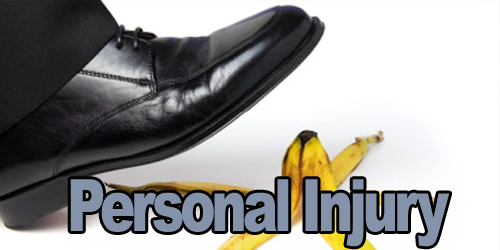
Click on the question below to reveal the answer.
Q: How do I know if I have a personal injury case?
A: First, you must have suffered an injury to your person or property. Second, you should consider whether your injury was the result of someone else’s fault. It is not always necessary to have a physical injury to bring a personal injury lawsuit. Personal injury claims are often based on a variety of non-physical losses and harms. In the case of an assault, for example, you do not need to show that a person’s action caused you actual physical harm, but only that you expected some harm to come to you. You also may have a case if someone has attacked your reputation, invaded your privacy, or inflicted emotional distress upon you.
Q: How soon after I am injured do I have to file a lawsuit?
A: Every state has certain time limits, called “statutes of limitations,” which govern the amount of time you have to file a personal injury lawsuit. In some states, you may have as little as one year to file a lawsuit arising out of an automobile accident. If you miss the deadline for filing your case, your claims can be dismissed. Consequently, it is important to talk with a lawyer as soon as you receive or discover an injury.
Q: What should I bring with me for my meeting with a lawyer?
A: You should provide a lawyer with any documents that might be relevant to your case. Police reports, for example, contain eyewitness information and details about the conditions surrounding auto accidents, fires, and assaults. Copies of medical reports and bills from doctors and hospitals will help demonstrate the extent and nature of your injuries. Information about the insurer of the person who caused your injury is extremely helpful, as are any photographs you have of the accident scene, your property damage, and your injury. The more information you are able to give your lawyer, the easier it will be for him or her to determine if your claim will be successful. If you haven’t collected any documents at the time of your first meeting, however, don’t worry; your lawyer will be able to obtain them in his investigation of your claim.
Q: What is “negligence?”
A: The critical issue in many personal injury cases is just how a “reasonable person” was expected to act in the particular situation that caused the injury. A person is negligent when he or she fails to act like the standard “ordinary reasonable person.” The determination of whether a given person has met his/her “ordinary reasonable person” standard is often a matter that is resolved by a jury after presentation of evidence and argument at trial.
Q: What if I can’t prove someone’s negligence caused my injury? Is there any other basis for personal injury liability besides negligence?
A: Yes; some persons or companies may be held “strictly liable” for certain activities that harm others, even if they have not acted negligently or with wrongful intent. Under this theory, a person injured by a defective or unexpectedly dangerous product, for instance, may recover compensation from the maker or seller of the product without showing that the manufacturer or seller was actually negligent. Also, persons or companies engaged in using explosives, storing dangerous substances, or keeping dangerous animals can be strictly liable for harm caused to others as a result of such activities. The theory behind imposing strict liability on those conducting such activities is that these activities pose an undue risk of harm to members of the community. Thus, anyone who conducts such activity does so at his own risk and is liable when something goes wrong and someone is harmed. The people who create certain risks are thus made accountable.